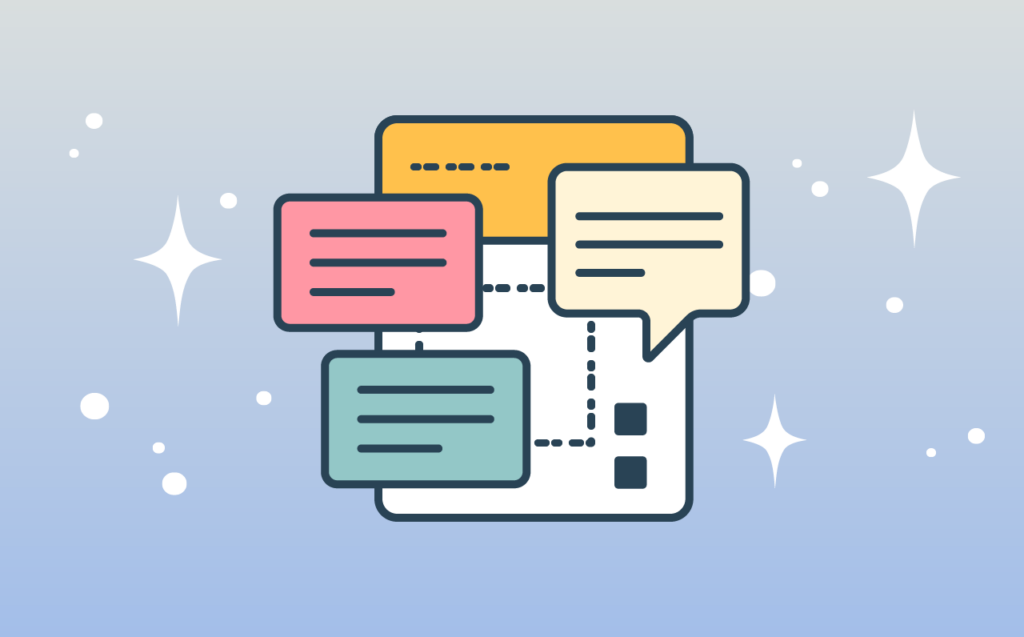With more states opening certification and funding opportunities for Certified Community Behavioral Health Clinics (CCBHCs), more behavioral health organizations are showing interest in the CCBHC program.
It’s a great pathway for securing the financial support your organization needs to expand care access while preserving care quality. But, with more orgs throwing their hat in the CCBHC ring, certification is becoming more competitive.
The good news? Innovative technologies can help.
Here are 8 ways a behavioral health CareOps Automation platform directly assists community behavioral health providers in winning a CCBHC grant from the Substance Abuse and Mental Health Services Administration (SAMHSA).
1. Maintain required staffing levels by positioning your organization as an employer of choice.
According to sections 1.a.1, 1.a.2, and 1.b.2 of the certification criteria, organizations must:
- Complete a community needs assessment.
- Develop and document a “staffing plan that is responsive to the community needs assessment.”
Furthermore, staff must be “appropriate for the population receiving services…in terms of size and composition.”
As most leaders in the behavioral health space know, attracting and retaining staff in the current environment is no small feat:
- Turnover rates at behavioral health facilities hovered around 30% in 2022.
- Over 50% of behavioral health providers report experiencing symptoms of burnout.
- SAMHSA projects that the US will be short about 31,000 full-time equivalent mental health practitioners by 2025.
Time spent on documentation and other burdensome administrative tasks is often cited as one of the largest factors contributing to provider burnout, which can lead to higher employee attrition.
And it makes sense: Most providers didn’t get into the behavioral health field with dreams of sitting at a desk and filling out paperwork for hours.
That’s where CareOps Automation swoops in for the win. Eleos Scribe, for example, leverages machine learning and augmented intelligence to automatically generate over 70% of required progress note documentation—ultimately reducing documentation time by more than 50%.
Tools like Eleos Scribe can help organizations create better work-life balance for their employees—and thus, position themselves as an employer of choice. For CCBHCs, this can have a substantial impact on the ability to maintain the volume and type of staff required to support their population.
2. Scale your provider supervision and training efforts.
Section 1.a.3 of the certification criteria requires clinic leadership to “provide guidance regarding behavioral health clinical service delivery” and “ensure the quality of the medical component of care.”
Additionally, sections 1.c.1, 1.c.2, and 1.c.3 require CCBHCs to provide a variety of staff training aligned with established standards to:
- Develop an ongoing training plan designed to “advance health equity, improve quality of services, and eliminate disparities.”
- Regularly assess “the skills and competence of each individual furnishing services” and provide “in-service training and education programs” as necessary.
- Provide “ongoing coaching and supervision to ensure initial and ongoing compliance with, or fidelity to, evidence-based, evidence-informed, and promising practices.”
This is perhaps one of the most challenging requirements for organizations to satisfy in a meaningful way. It’s one thing to provide blanket training that addresses generalized opportunities for improvement. It’s quite another to dig into strengths and weaknesses at the individual provider level and offer targeted coaching and education.
With tools like Eleos Scribe, the latter becomes possible at scale. This AI-driven solution delivers intelligence and analytics at the provider and individual session level, empowering supervisors to assess provider performance and identify specific areas for improvement.
Organizational leaders also have access to reporting dashboards that provide clear visibility into staff activity, caseloads, and performance as well as key population health metrics and trends.
All of this has been shown to drive a 35% increase in the use of evidence-based techniques and a 3–4x improvement in symptom reduction.
3. Foster efficient mobile care delivery.
As noted in section 2.a.3 of the CCBHC certification criteria, organizations must provide services “at locations that ensure accessibility and meet the needs of the population to be served, such as settings in the community…and, as appropriate and feasible, in the homes of people receiving services.”
Furthermore, section 2.a.6 requires CCBHCs to conduct “outreach, engagement, and retention activities to support inclusion and access for underserved individuals and Populations.”
Finally, sections 2.e.1 and 2.e.2 require CCBHCs to address the needs of individuals “who do not live close to the CCBHC” and to ensure “no individual is denied behavioral health care services…because of place of residence, homelessness, or lack of a permanent address.”
In other words, CCHBCs must be equipped for mobile care delivery—and that’s exactly what tools like Eleos Outreach are designed to do. With Outreach, field-based providers and case managers can easily document on the fly right from their mobile devices—reducing documentation time by 80% and helping to ensure services delivered outside of the facility are not only recorded, but also properly billed and reimbursed. Plus, they love using it.
4. Enable remote patient monitoring.
Section 2.a.5 of the certification criteria addresses the use of technology directly, stating that the CCBHC must use “telehealth/telemedicine, video conferencing, remote patient monitoring, asynchronous interventions, and other technologies, to the extent possible, in alignment with the preferences of the person receiving services to support access to all required services.”
Eleos Health’s CareOps Automation platform not only works seamlessly in tandem with existing telehealth platforms, but also allows for easy digital collection of patient-reported outcomes like PHQ-9 and GAD-7—with all data collected directly from the client at appropriate intervals and transferred into the EHR for ease of use.
5. Track and analyze data at scale—opening the door for improved care coordination, greater insight into SDOH, and increased fidelity to evidence-based practice.
This is a big one. Augmented intelligence is uniquely poised to impact two major focus areas across the entire healthcare community:
- advancing efforts around social determinants of health (SDOH), and
- fostering the delivery of coordinated, evidence-based care at scale.
These focus areas permeate several CCBHC certification requirements, including the following:
- The CCBHC “coordinates care across the spectrum of health services…to facilitate wellness and recovery of the whole person.” (Section 3.a.1)
- The CCBHC “uses its secure health IT system(s) and related technology tools…to conduct activities such as population health management, quality improvement, quality measurement and reporting, reducing disparities, outreach, and for research.” (Section 3.b.2)
- The CCBHC “uses technology that has been certified to the current criteria” and that aligns “with key clinical practice and care delivery requirements for CCBHCs.” (Section 3.b.3)
- The CCBHC “must provide evidence-based services using best practices for treating mental health and substance use disorders across the lifespan with tailored approaches for adults, children, and families.” (Section 4.f.1)
CareOps Automation platforms like Eleos Health leverage cutting-edge augmented intelligence capabilities to impact these focus areas in unprecedented ways. For example, Eleos Health:
- Enhances care coordination by providing structured data that can be used to track and address client needs at scale, in service of the requirements laid out in section 3.a.1.
- Eleos users can identify and track over 30 evidence-based therapeutic modalities and interventions related to CBT, MI, DBT, and ACT, as validated by clinical experts with 180+ years of collective experience using a massive real-world database of behavioral health sessions.
- Enables providers to understand the full content of conversations beyond evidence-based techniques—including social determinants of health (housing, educational systems, employment, etc.)—as required by section 3.a.1.
- Allows organizations to securely export and share conversational data (structured and unstructured) in any format and to any BI tool for further analysis and research directed at quality improvement, as required in section 3.b.2.
- Delivers evidence-based clinical decision support, which is one of the required core set of certified health IT capabilities defined in section 3.b.3. (As a side note, the criteria states that these core requirements can be met with a combination of tools.)
- Empowers organizations to quantify and measure evidence-based techniques, as required by section 4.f.1.
6. Ensure full compliance with data security and privacy regulations.
As noted in section 3.b.4 of the certification criteria, CCBHCs are responsible for ensuring compliance “with privacy and confidentiality requirements,” including but “not limited to HIPAA…and other federal and state laws, including patient privacy requirements.”
A trusted CareOps Automation platform like Eleos Health supports this need, as all data is encrypted both in transit and at-rest, and the system overall is fully HIPAA compliant with SOC2 Type II, ISO27001, and ISO 27799 certifications.
7. Support staff in providing care in any setting—inside or outside of the clinic.
As explained in section 4.A of the certification criteria, CCBHCs are required to provide nine services ranging from outpatient mental health and substance use services to community outreach and peer support.
With a CareOps Automation platform like Eleos Health, staff can always access and use technology that makes them more effective and efficient—regardless of setting or location. This, in turn, helps organizations better retain employees, ensuring they can continue to provide the required range of services. (See item #1 above for more on the impact of CareOps Automation on staffing.)
Section 4.h.1 specifically requires CCBHCs to provide “targeted case management services” that assist people in gaining access to needed medical, social, legal, educational, housing, vocational, and other services. These services must be “accessible during…critical periods, such as episodes of homelessness or transitions to the community from jails or prisons.”
With CareOps Automation tools like Eleos Outreach, providers and case managers can easily complete their documentation from virtually anywhere—leading to more complete client records and guarding against revenue losses due to undocumented billable services.
8. Continuously monitor care plans and goals—and make data-backed adjustments as necessary.
Sections 4.d.6 and 4.e.3 of the certification criteria note that organizations must administer “standardized and validated and developmentally appropriate screening and assessment tools” and use “ongoing screening and assessment of the person receiving services to inform the treatment plan and services provided.”
Additionally, sections 4.e.4 and 4.e.5 state that treatment plans should be written in “manner capturing the words or ideas of the person receiving services” and be “built upon a shared decision-making approach.”
Sections 5.a.1, 5.b.1, 5.b.2, and 5.b.3 lay out additional data collection requirements, noting that CCBHCs must:
- have “the capacity to collect, report, and track encounter, outcome, and quality data”;
- implement “a CCBHC-wide continuous quality improvement (CQI) plan for the services provided” that “is data-driven and…considers use of quantitative and qualitative data”; and
- establish “a critical review process to review CQI outcomes and implement changes to staffing, services, and availability that will improve the quality and timeliness of services.”
A CareOps Automation platform like Eleos allows providers to not only easily collect assessment and screening data directly from the client (e.g., PHQ-9), but also monitor and adjust the treatment plan and goals based specifically on the conversational content of each session (i.e., the client’s own words).
Organizations can also use Eleos to measure the average number of evidence-based techniques used by each provider or in each session—leading to a 30%+ increase in evidence-based care delivery.
While the certification requirements for the CCBHC program might seem overwhelming and complex, innovative technologies—specifically, CareOps Automation platforms like Eleos Health—can assist with several components.
With Eleos Health, community behavioral health organizations can simultaneously enhance the quality and coordination of care, reduce administrative burden, and facilitate quality data reporting and compliance. All of this leads to increased access to high-quality community mental health and substance use care—the exact purpose of the CCBHC program.
Want to learn more about all the ways Eleos Health helps community behavioral health organizations focus more on care—and less on ops? Request a personalized demo of our CareOps automation platform here.
Looking for a quick summary of everything we covered above? Feel free to save and share the infographic below, or access it here!


